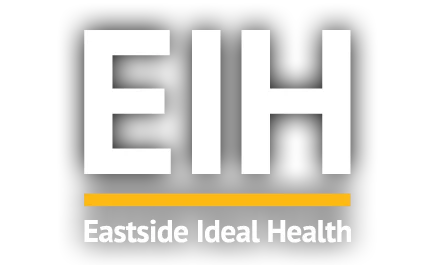When it comes to maintaining healthy hair, proper nutrition plays a crucial role. Just like the rest of your body, your hair needs essential nutrients to stay strong, shiny, and vibrant. Whether you’re dealing with hair loss, dryness, or brittleness, making some changes to your diet can significantly improve the health of your hair.
The Importance of a Balanced Diet
A balanced diet that includes a variety of nutrients is essential for overall health, including the health of your hair. Your hair is primarily made up of a protein called keratin, so it’s important to include enough protein-rich foods in your diet. Additionally, vitamins, minerals, and antioxidants support hair growth and prevent damage.
Here are some important nutrients that you should include in your diet to promote healthy hair:
Protein
Protein is the building block of your hair, so it’s crucial to consume enough of it to support healthy growth. Good sources of protein include lean meats, fish, eggs, dairy products, and plant-based options like tofu and legumes. If you’re a vegetarian or vegan, make sure you’re getting enough protein from alternative sources like quinoa, chia seeds, and spirulina.
Vitamins
Vitamins play a crucial role in promoting healthy hair growth and preventing hair loss. Here are a few key vitamins to include in your diet:
- Vitamin A: This vitamin helps the scalp produce healthy oils. Include foods like carrots, spinach, sweet potatoes, and mangoes, which are rich in vitamin A.
- Vitamin E: Vitamin E is an antioxidant that helps repair and build tissues. Include foods like almonds, peanuts, spinach, and broccoli in your diet.
- Vitamin C: Vitamin C aids in collagen production and helps strengthen the hair. Include foods like citrus fruits, strawberries, bell peppers, and dark leafy greens.
- Vitamin D: Vitamin D helps stimulate hair follicles, so make sure to get some sunlight exposure and include foods like fatty fish, fortified dairy products, and mushrooms.
Minerals
Minerals are essential for maintaining healthy hair. Here are a few minerals to focus on:
- Zinc: Zinc helps support hair growth and prevents hair loss. Include foods like oysters, beef, pumpkin seeds, and legumes.
- Iron: Iron deficiency can lead to hair loss, so make sure to include iron-rich foods like red meat, spinach, lentils, and quinoa in your diet.
- Selenium: Selenium is an antioxidant that helps protect the hair follicles. Include foods like brazil nuts, tuna, turkey, and eggs.
Omega-3 Fatty Acids
Omega-3 fatty acids are essential for maintaining a healthy scalp and promoting hair growth. Include foods like fatty fish (salmon, mackerel, sardines), walnuts, chia seeds, and flaxseeds in your diet to ensure you’re getting enough omega-3s.
Hydration is Key
Drinking enough water is essential for maintaining healthy hair. Staying hydrated helps keep your hair moisturized and prevents dryness and brittleness. Aim to drink at least 8 glasses of water per day and limit your consumption of sugary drinks that can dehydrate your body.
Additionally, you may consider seeking guidance from a nutrition coach to ensure you’re meeting your specific nutritional needs for healthy hair. A trained professional can help create a personalized nutrition plan that includes the right balance of nutrients to support optimal hair health. Nutrition coaching
Remember, healthy hair is a reflection of overall health, so make sure to prioritize a nutritious diet, stay hydrated, and take care of yourself from the inside out.

